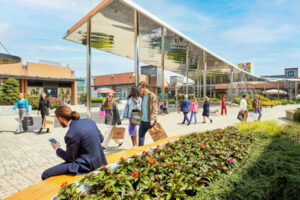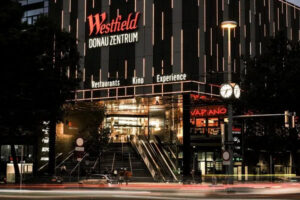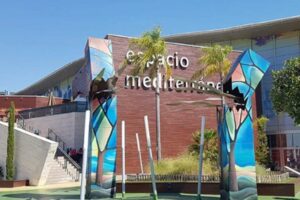“It really sums up well our company ethos, since we care a lot about the environment,” said Mark Petkevich, CEO of Novus. “We want to offer the best and freshest products to our customers, while also ensuring that we have a low carbon footprint.”
Every day about 140,000 customers tick off their shopping lists and pick up food, drinks and other products in more than 40 Novus supermarkets across Ukraine. The chain specialises in local produce: fresh blueberries and other seasonal fruit are on display and traditional pastries fill the bakery shelves, while crayfish scuttle across a large aquarium.
Less energy to preserve the environment
“A modern supermarket requires various lines of fridges and freezers, industrial heaters and air-conditioning to offer what customers expect,” explained Mr Petkevich. “It’s a challenge but also an enormous opportunity for us, since innovative equipment can offer huge potential to cut energy use and help protect the environment.”
Novus saw this opportunity and invested €23 million in total to make the necessary changes.
The EBRD loan was part of its Finance and Technology Transfer Centre for Climate Change (FINTECC), supported by funds from the European Union and the Global Environment Facility. The Bank provides finance for companies to invest in energy, water and material-efficient technologies, while its partners complement it with funding for incentive payments and to identify and verify the best equipment and practices.
The activities aim to promote these innovative technologies to help mitigate and adapt to the effects of climate change. They are also expected to act as a catalyst to transfer the relevant knowledge and technology to different business sectors and regions.
Building green, competitive businesses
At Novus, the new equipment and improvements to its logistics systems have had a significant impact. Its LED lighting uses 40 per cent less energy. In addition, new fridges and freezers have cut consumption by 10 per cent.
On average, the supermarket chain now uses 20 per cent less energy than retailers in the EU.
Novus is a Lithuanian-owned business, explained Mr Petkevich. “We try to bring best practices from the European retail market to Ukraine and, where possible, even exceed them.”
In Ukraine, green investments are urgently needed. Local businesses still use three times more energy compared to those in the EU. The inefficient use of energy, water and other precious resources comes at an extra cost to companies, as it makes them less competitive than their foreign counterparts.
In the case of Novus, the investment is one into the future, and one that benefits everyone: the planet, the company and the economy. The supermarket chain has now established itself among Ukraine’s top 10 retailers, which, in turn, has created new employment opportunities. Currently, more than 5,000 employees work for the company in Ukraine.
“Building a sustainable, green economy is among our top priorities in Ukraine,” said Lesya Kuzmenko, Deputy Head of the EBRD’s Kyiv office. “Together with our partners, we have helped a wide range of businesses to use innovative energy efficient technologies, including furniture producers, agribusinesses, retailers and many more.”
“The EU is co-funding FINTECC in order to help Ukrainian companies modernise and have access to state-of-the art technologies that limit greenhouse gas emissions. We are supporting Ukraine and its economy to become less energy-intensive and more climate-friendly,” said Stefan Schleuning, Head of Cooperation of the EU Delegation to Ukraine.
Across Ukraine, it isn’t only Novus shoppers, but also companies and the general public, who increasingly recognise: green is the colour to go for.





